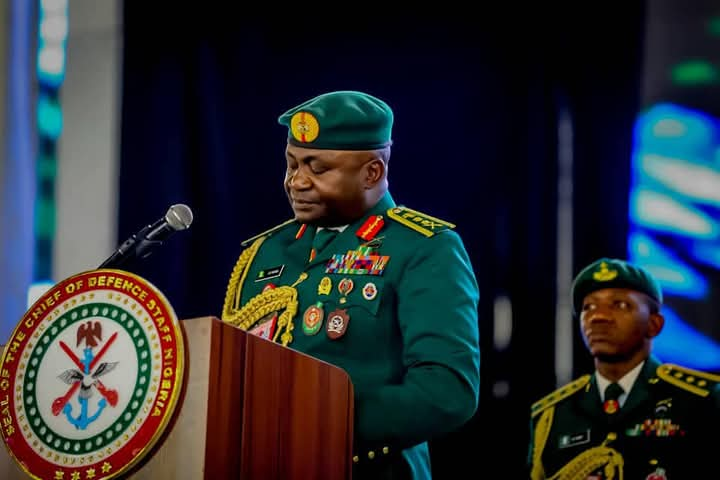By Victor Akaa.
The Chief of Defence Staff, General Christopher Musa, has had his claims confirmed that Boko Haram extremists are being sponsored by foreign countries.
In a recent interview with Al Jazeera, General Musa expressed concerns about the persistence of Boko Haram’s activities over the past 16 years, despite Nigerian military efforts to defeat them. He cited evidence that many captured Boko Haram terrorists were found with funds linked to powerful foreign nations, suggesting international complicity in supporting the group.
During the interview, General Musa put forward a challenging question, saying “how have they (terrorists) been able to sustain themselves for 15 years?
General Musa’s assertion was recently corroborated by a US congressman, Scott Perry who dropped a bombshell, alleging that the United States Agency for International Development (USAID) has been funneling a staggering $697 million annually to terrorists organisations including the notorious Boko Haram. This shocking revelation was made during a hearing on government efficiency, where Perry questioned the misuse of taxpayer funds to support terrorist groups like ISIS and Al-Qaida. He also claimed that USAID’s funding of programmes in countries like Pakistan and Afghanistan has been ineffective, with millions of dollars unaccounted for, and instead, being used to fund terrorism. He affirmed that, over $136 million was allocated to USAID to build 120 schools in Pakistan, yet there’s zero evidence that these schools exist.
This vindicates General Musa’s earlier statement and raises questions about the true nature of Boko Haram’s rise to power and the extent of foreign involvement. The recent surrender of over 120,000 Boko Haram members, many of whom were found with money from powerful foreign countries, has sparked a heated debate about the conflict. As General Musa aptly put it, “Where are they getting this money? Who is training them? Who is supplying them with weapons?” These questions seem to be rhetorical but are needed to be answered. The discovery of foreign money among surrendered Boko Haram members is a disturbing indication of the level of external support the group has received.
It is clear that Boko Haram’s ability to wage war against the Nigerian state has been facilitated by foreign powers. The question of who is training and supplying Boko Haram with weapons is critical, and it is likely that the group has received support from foreign military personnel. Skelly Moss from James Madison University notes that the international community’s role in perpetuating the conflict cannot be overstated, and it’s crucial to examine the complex web of interests and alliances that have contributed to Boko Haram’s rise. The implications of foreign involvement in Boko Haram’s activities are far-reaching, suggesting that the conflict is not just a local insurgency, but a complex web of international intrigue and geopolitics.
The Nigerian government and military must now confront the reality that they are facing a domestic enemy backed by powerful foreign forces. Under General Musa’s leadership, the Nigerian military has made significant gains against Boko Haram, recapturing territories and neutralizing insurgents. As General Musa continues to lead the charge against extremism, it is clear that he has earned the respect of many. His leadership has been instrumental in shaping the Nigerian military’s response to the conflict, and his commitment to defeating the extremists is unwavering.
The surrender of over 120,000 Boko Haram members and the discovery of foreign money among them is a significant development, raising important questions about the true nature of Boko Haram’s rise to power and the extent of foreign involvement. As General Musa said, “We need to get to the bottom of it,” and it is essential that the Nigerian Government and the International community work together to uncover the web of deceit behind Boko Haram’s activities.
Victor Akaa writes from Abuja.












